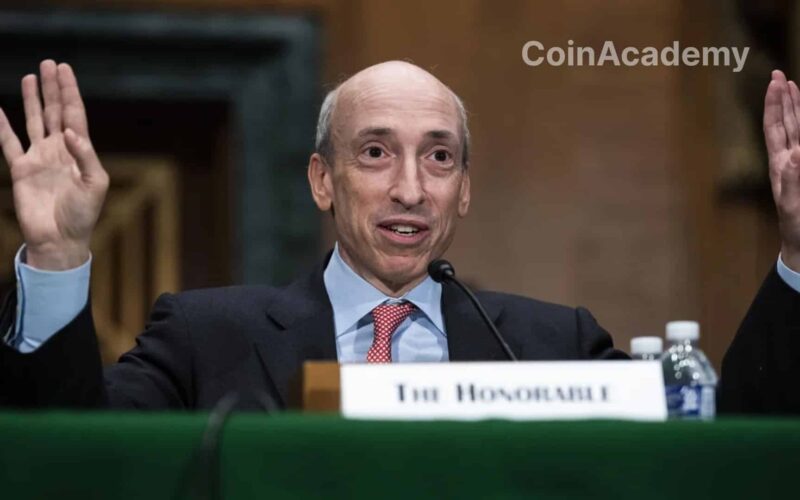SEC Commissioner Mark Uyeda has described the agency’s cryptocurrency policy as a “disaster”, citing a lack of clarity and direction.
He criticizes President Gary Gensler for prioritizing repression over clear guidelines, creating total confusion in the crypto industry.
Crypto.com’s lawsuit against the SEC highlights the growing frustration with this approach, with calls for radical reform to foster innovation in the United States.
On October 10, 2024, Mark Uyeda, Commissioner of the United States Securities and Exchange Commission (SEC), severely criticized the agency’s cryptocurrency policy, calling its approach a “disaster”. In an interview on Fox Business, Uyeda did not mince his words, pointing out the inefficiency of the current strategy, which he believes lacks clarity and direction.
According to Uyeda, instead of establishing clear guidelines for crypto companies, SEC President Gary Gensler has favored an enforcement-based approach, leaving the industry in total confusion. He emphasizes:
Our policies and approach over the past years have been a real disaster for the entire industry. We have conveyed this policy through enforcement measures without providing clear guidance.
This statement echoes the many criticisms leveled at the SEC in recent years, where the absence of precise regulatory frameworks has often led to lawsuits, leaving the courts to decide on key issues, sometimes with contradictory judgments. This situation has further exacerbated the uncertainty hanging over the crypto ecosystem.
The Crypto.com Case: An Illustrative Example
Mark Uyeda’s criticism came as the platform Crypto.com filed a lawsuit against the SEC, accusing the agency of abusing its authority. The Singapore-based crypto exchange is challenging a Wells Notice issued by the SEC, a document warning of possible imminent legal action. At the heart of the matter is the question of whether the majority of cryptocurrencies should be classified as financial securities. The SEC’s position, which considers almost all cryptocurrencies to fall into this category, is strongly contested by much of the crypto industry.
This legal recourse illustrates the growing frustration within the sector regarding the SEC’s regulatory method, which is deemed too harsh and ill-suited to the nature of digital assets. For many industry players, the current securities rules simply do not correspond to the specifics of cryptocurrencies.
A Policy Dictated by Gary Gensler
Mark Uyeda did not hesitate to question the effectiveness of the approach advocated by Gary Gensler, which he deems inappropriate for overseeing the digital asset market. He believes that before taking enforcement actions, the agency should have clearly defined what falls under securities laws and what does not. He explains:
The approach we are taking seems to be the wrong one. We need to establish clear guidance and interpretations on what falls under securities laws.
Although he refused to speculate on Gensler’s personal motives, Uyeda acknowledged that the SEC Chairman has a fixed vision on how cryptocurrency regulation should be conducted. However, he regrets that this unilateral vision is imposed on the entire agency, leaving little room for divergent opinions.
Internally, Uyeda and Commissioner Hester Peirce are known to be more favorable to progressive cryptocurrency policies. However, as Uyeda highlights, the final decisions of the agency are guided by Gary Gensler’s directives. He declares:
Within the agency, our agenda is dictated by Chairman Gary Gensler. All staff members follow his approach.
The Future of Crypto Regulation in the United States
Mark Uyeda’s outspoken criticism reflects a growing unease within the crypto industry over the perceived repressive rather than constructive attitude of the SEC. The lack of clear rules continues to weigh heavily on crypto companies operating in the United States, and several voices, including Uyeda’s, are now calling for a radical change in the regulator’s approach.
It is becoming increasingly evident that without a reform of the SEC’s current approach, tensions between the agency and the crypto industry will only intensify, to the detriment of innovation and economic development in the United States.




